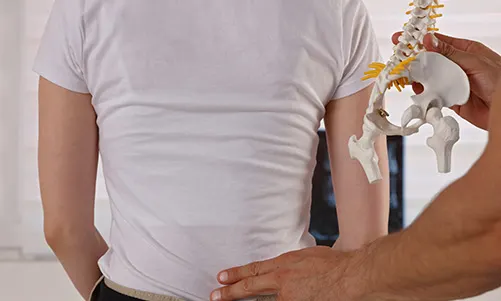Lower back pain can cause severe pain, limit mobility, weakness & numbness in the legs, and lead to postural changes. Numerous disorders such as degenerative disc diseases, spinal stenosis, and herniated discs can compress nerves resulting in persistent lower back pain. The goal of treatments like lumbar decompression surgery is to reduce pressure and stress on the lower spine nerves and spinal cord.
If you are experiencing symptoms of lower back pain, consult with the best orthopedists at the CK Birla Hospital to explore the most suitable treatment options for your condition.

Lumbar decompression surgery is performed to relieve pressure on the spinal cord or nerves in the lower back by trimming or removing parts of bone or tissue to create more space to reduce nerve compression.
These figures are approximate and can vary based on individual circumstances, hospital facilities, and additional services required.
| Category | Minimally Invasive Surgery | Traditional Open Surgery |
| Blood loss | Less blood loss during surgery | More blood loss during surgery |
| Risk of Infection |
Lower risk of infection |
Higher risk of infection |
| Complications | Less risk of complication | Higher risk of complication |
| Pain | Less pre-operative pain | More pain due to larger incision |
| Recovery Time | Faster recovery within weeks | Slower recovery, may take months |
|
Cosmetic Outcome |
Minimal scarring | Noticeable scars |
Lumbar spine is the lower spine between the thoracic vertebrae and the pelvis.
Yes, lumbar decompression belts work and ease the pressure on the lower back.
Lumbar decompression surgery is considered safe.
Decompression helps with relieving back pain by reducing pressure on the nerves and spinal cord.